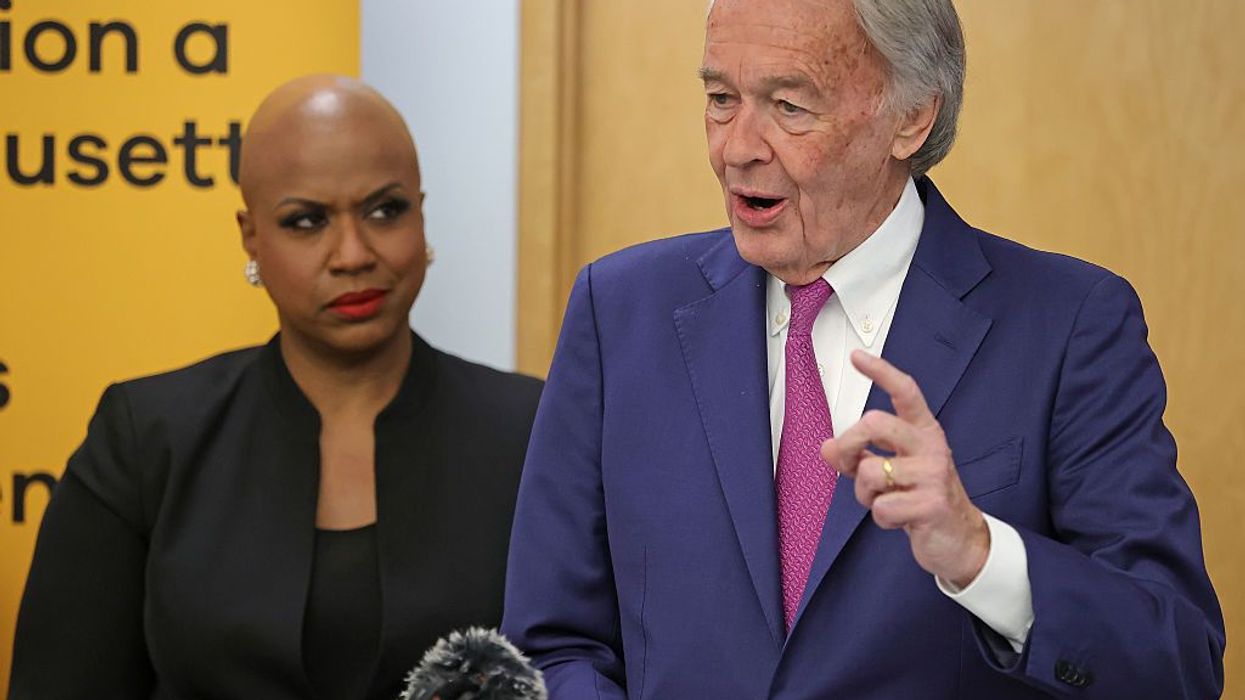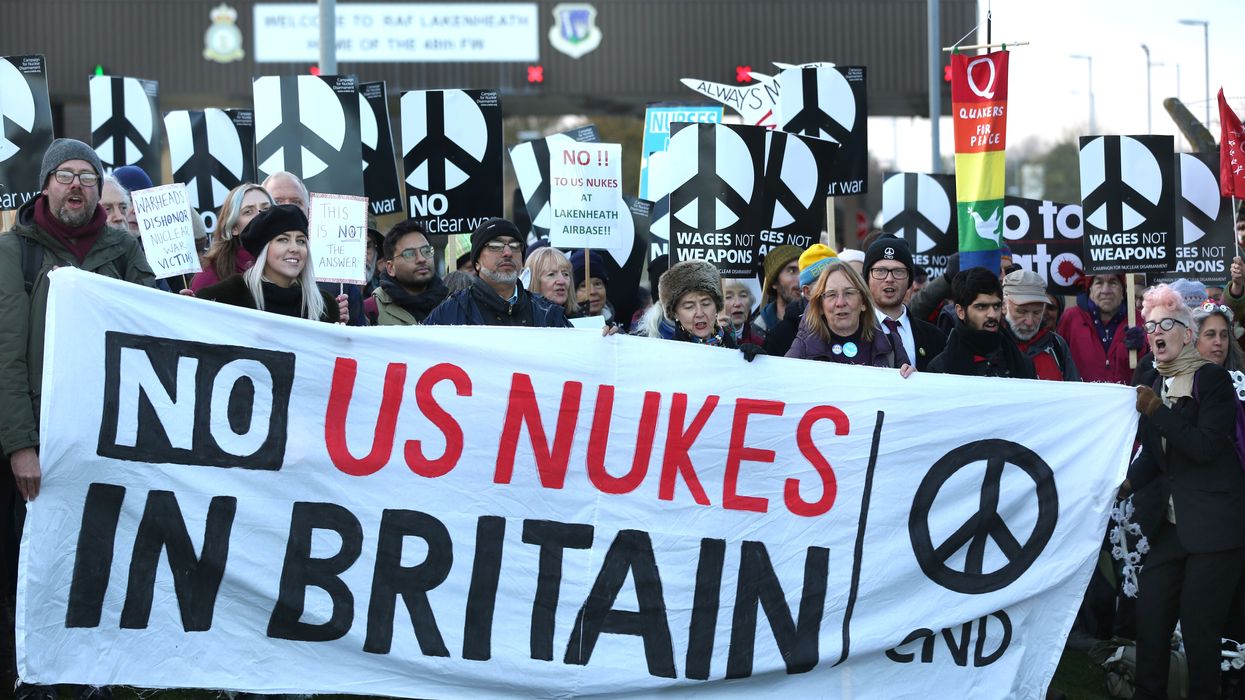‘A Mistake of Radioactive Proportions’: Markey Pushes Bill to Block Trump From Testing Nuclear Bombs
"This is a reckless directive from Trump that will only make the country and the world less safe and lead to a terrible new nuclear arms race," Markey said.
President Donald Trump's surprise order to resume nuclear weapons testing has set off concerns about a potential global arms race, but one Democratic senator is working to stop it from happening.
Sen. Ed Markey (D-Mass.) on Thursday introduced emergency legislation to prevent the president from resuming nuclear weapons tests, which experts have warned could undermine global geopolitical stability as more nations could respond by ramping up weapons tests of their own.
The text of Markey's bill is just two pages and it states that "none of the funds authorized to be appropriated or otherwise made available for fiscal year 2026, or authorized to be appropriated or otherwise made available for any fiscal year before fiscal year 2026, and available for obligation as of the date of the enactment of this act, may be obligated or expended to conduct or make preparations for any explosive nuclear weapons test that produces any yield."
In a statement promoting the bill, Markey warned that restarting nuclear weapons tests would be "a mistake of radioactive proportions," which Congress should intervene to block.
"The United States has not conducted a nuclear test since 1992, and there is absolutely no need to resume," Markey said. "A Trumpatomics plan would provoke Russia and China to resume nuclear testing, and China in particular has much more to gain from this than does the United States. This is a reckless directive from Trump that will only make the country and the world less safe and lead to a terrible new nuclear arms race."
Markey, who co-chairs the Nuclear Weapons and Arms Control Working Group, also urged the US Senate to finally ratify the Comprehensive Test Ban Treaty, which was first adopted by the United Nations General Assembly in 1996 and which has been ratified by 178 other nations.
The UK-based Campaign for Nuclear Disarmament (CND) on Thursday put out a statement condemning Trump's weapons testing announcement, which it described as "a wake-up call that the threat of nuclear war is real and accelerating."
The organization also pointed out that resuming nuclear tests was not the only way that the US under the leadership of both Trump and former President Joe Biden is increasing the risks of nuclear war. Among other things, CND pointed to risks posed by the "Golden Dome" missile shield being pushed by Trump, as well as the AUKUS Agreement signed during Biden's tenure that gives Australia access to nuclear-powered submarines.
CND general secretary Sophie Bol warned of the dire consequences of a global nuclear arms race and said "it is absolutely critical that we rachet up the political pressure to make these world leaders—including the British government—step back from this nuclear escalation."
In an editorial published by Common Dreams on Thursday, Pavel Devyatkin, nonresident fellow at the Quincy Institute for Responsible Statecraft, argued that the resumption of nuclear weapons tests "marks a dangerous turning point in international security."
In particular, Devyatkin argued that resuming such tests would imperil chances of extending the nuclear arms treaty between the US and Russia that has been in effect since 2011.
"The New Strategic Arms Reduction Treaty (New START), the last agreement limiting US and Russian nuclear weapons, expires in February 2026," he explained. "For over a decade, New START has kept a cap on deployed warheads and compelled both sides to transparency through data exchanges and inspections. If this agreement expires, there would be no binding limits on the two countries’ nuclear arsenals."


